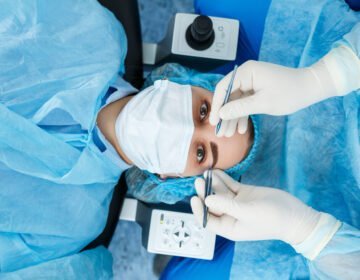
Everything you should know about the Jaw implant
What is a jaw implant?
A jaw implant is a surgical procedure in which the implant is placed along the jawline to give the jaw and jaw a more distinctive appearance. This surgery is an option suitable for both men and women who feel that their chin is retracted or smaller than the rest of the face or that their jaws are unclear. When performed by a skilled plastic surgeon, jaw implants help balance the proportion of all facial features. Such implants are often combined with rhinoplasty or rhinoplasty because the nose and jaw complement each other in terms of facial proportions.
How much does a jaw implant cost?
Jaw implants are usually considered cosmetic surgery. In other words, it is not covered by insurance. The procedure itself usually costs $ 2,000 to $ 4,000. Also, keep in mind that you will need seven days off to recover from the procedure. How to Do
Jaw Implants Work?
Jaw implants are usually made of silicone or polyethene and are called Medpor Trusted Source. The implant is designed to fit the shape of the patient’s face exactly. Implants extend the appearance of the chin, usually around the chin, giving the face a sharper angle and a more apparent chin line.
Jaw Implant Procedure
Obtaining a jaw implant is an outpatient procedure that typically takes only one hour. There are different types of implants, depending on the amount of natural bone you have. The typical procedure is as follows:
- You will come to your appointment, fill out the relevant paperwork, and be shown in the room where the procedure will be performed.
- A nurse or surgeon will give you general anaesthesia.
- An incision is usually made in the mouth to reduce scarring.
- The implant is placed in a pocket created by an incision along the jawbone.
- After the jaw implant is inserted, the incision is closed with stitches or stitches, and the jaw and jaw area can be bandaged.
- The jaw transplant itself takes about an hour.
- Anaesthesia can endanger driving, so have someone else pick you up.
Jaw Implant Target Area
Although implants can be placed in many parts of the body, jaw implants specifically affect the lower half of the face and emphasize the jaw and jaw areas.
Risks or Side Effects All plastic surgery carries at least some risk. The risks of getting a jaw implant are:
- Swelling
- Infections that may lead to implant removal
- Anaesthesia complications
- Long-term scars
- Excessive bleeding
- Displaced implants requiring corrective surgery
- Allergic reactions to implants
- Nerve damage
Nerve damage is significantly lower lip. It includes numbness and damage to the nerves that control the muscles around the mouth. This can lead to asymmetric smiles, drools, or lisps. These complications are usually temporary and improve in weeks or months.
What to expect after jaw implant surgery
- Jaw implant surgery is a relatively quick procedure, but recovery should be planned.
- Even if the surgical site is swollen and probably bruised for at least a week, the results will be displayed immediately.
- May swell with painkillers or cold compresses recommended by your doctor.
- Implants made of silicon and titanium carrier sources are permanent but have little potential for displacement or infection.
- You should plan to quit smoking and drinking for at least a few weeks after surgery.
- Plan to sleep with your head raised and try not to lie down.
- You will need to come back after about a week to remove the stitches so that your doctor can confirm your healing.
Jaw Implant Preparation
Before the jaw implant, there are steps to make it as smooth as possible. Here are some things you can do to prepare:
- Stop smoking before the week of the procedure, and plan to not smoke in the weeks after.
- Avoid taking blood-thinning medications, including ibuprofen and certain herbal supplements.
- Make sure to arrange a vehicle for going and returning from your appointment, and if you live alone, see if there is someone who can check in on you during your recovery time.
- It can be wise to visit your general practitioner before your surgery to ensure you are in good health and that your body can handle the surgery.
- Talk to your surgeon beforehand and look at before and after pictures to ensure realistic expectations for surgery.
















